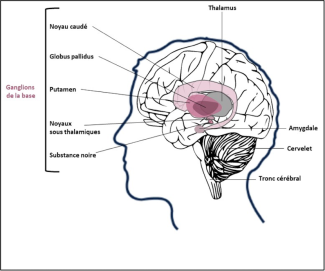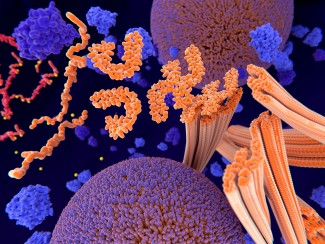The causes of progressive supranuclear palsy (PSP) are still unknown. This condition is considered multifactorial, with a probable genetic predisposition coupled with an environmental factor. It is not a hereditary disease, and the genetic component is very likely based on several genetic variants that have not yet been identified. One hypothesis that has been studied is a toxic environmental origin, such as exposure to arsenic or chromium in the textile industry, but this has never been formally proven.
Causes of PSP
PSP is described as a tauopathy because there is an abnormal and toxic accumulation of abnormally phosphorylated tau protein in neurons, resulting in their degeneration. Other brain cells such as astrocytes and oligodendrocytes, which protect and nourish neurons, are also affected.
The brain regions severely affected in all patients are the pallidum, the subthalamic nuclei, and the substantia nigra. Other regions may also be the site of neuronal death in some patients, including the thalamus, hippocampus, and frontal cortex.

At Paris Brain Institute
Dr Isabelle Le Ber, neurologist, Coordinator of the Reference Center for Progressive Supranuclear Palsy at Pitié-Salpêtrière Hospital and researcher on the team led by Alexandra Durr and Giovanni Stevanin is seeking to identify the causes and better understand the mechanisms of the disease.

